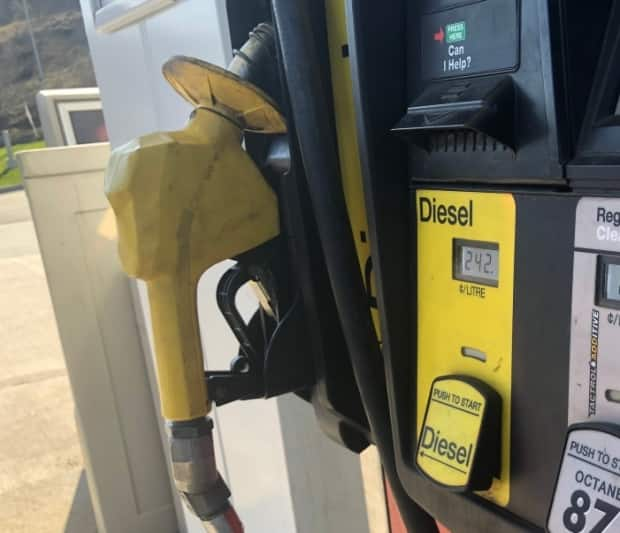Diesel skyrockets more than 27 cents across N.L., stove oil up 30 cents in Lab West


A "significant spike" in pricing benchmarks has shot the price of diesel up by over 27 cents per litre across Newfoundland Saturday, according to the Public Utilities Board.
The unscheduled adjustment from the PUB puts the price of a litre of diesel at $2.673 on the Avalon peninsula.
Elsewhere in Newfoundland, the price is now $2.69 per litre on the Bonavista peninsula, almost $2.70 in central Newfoundland, $2.73 on the Connaigre Peninsula, between $2.68 and $2.69 per litre in western Newfoundland and between $2.69 and $2.71 on the northern peninsula.
Most of Labrador is unaffected due to a seasonal price freeze, but customers in Labrador West and Churchill Falls are impacted by the increase. The price of diesel in the regions is now $2.738 per litre and $276.4 per litre respectively.
Residents of Labrador West and Churchill Falls are also seeing a major increase in the price of stove oil Saturday, where the cost is up 30.92 cents per litre.
The price of stove oil is now over $2.14 per litre in Labrador West and $2.16 per litre in Churchill Falls. All other regions in the province aren't subject to the increase.
The adjustment is due to a shortage of ultra-low sulphur kerosene (USLK) and a spike in benchmark pricing as a result. USLK is a product blended into low-sulphur diesel to prevent thickening in freezing cold conditions.
According to the PUB, USLK makes up 75% per cent of the benchmark price for the winter blend of diesel used in most of Newfoundland and Labrador and 100 per cent of the benchmark price for stove oil in Labrador.
All other fuels are unaffected since the weekly adjustment on Thursday, when both diesel and stove oil in Labrador lowered by four cents and 6.42 cents per litre respectively.


